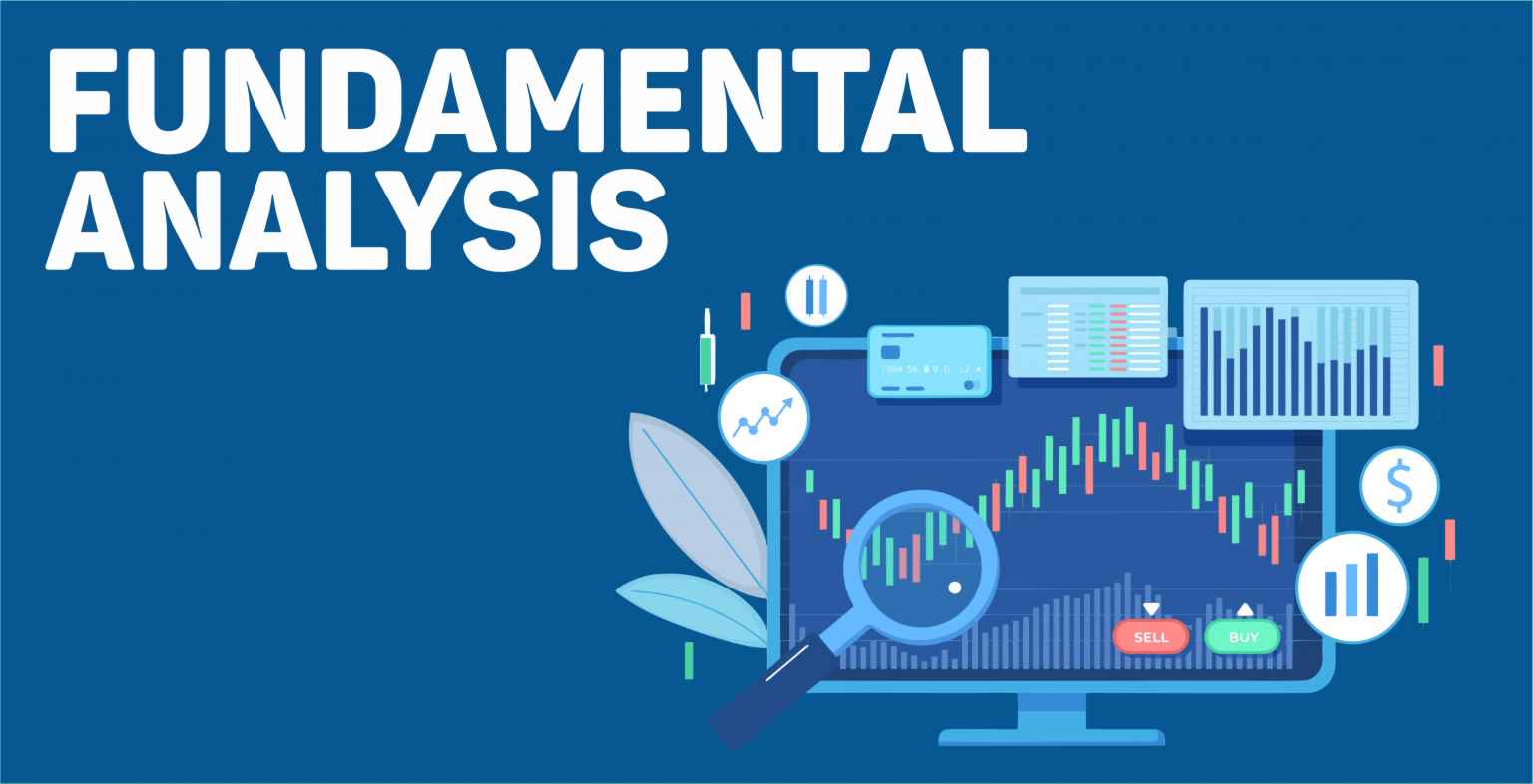In this article, you will learn everything you need to know about fundamental analysis, one of the two primary methodologies for analysing investment opportunities, alongside technical analysis.
1. What is primary analysis?
2. Analysis of fundamentals and fair value.
3. Significant aspects of fundamental analysis.
What is the definition of basic analysis?
Fundamental analysis is a market estimation method that analyses numerous data sources to determine the fair value of an item. In contrast to technical analysis, fundamental analysis develops a comprehensive picture of a security’s strengths and shortcomings.
Fundamental analysis is frequently suggested as a tool for selecting equities to purchase. However, it is utilised by traders across numerous asset classes.
A fundamental trader in forex, for instance, would investigate any data that is likely to have a substantial impact on the price of a currency pair, such as economic data, political considerations, or even the impact of natural disasters.
However, fundamental traders do not examine data arbitrarily. They attempt to determine a market’s fair value to determine whether it is underpriced or overpriced.
Analysis of fundamentals and fair value
Fundamental analysis is predicated on the notion that every asset has a fair value, and that although markets may temporarily overprice or underprice an item, its price should eventually normalise to its fair value. Suppose you evaluate a firm and determine that its present share price undervalues it. You may acquire its shares and then sell it when the market “catches up” to the value that you have assigned to it.
There are several things to consider when determining the fair value of a currency. You might examine economic releases, central bank moves, retail consumption, and other variables.
Negative features of fundamental analysis
Fundamental analysis is a terrific method to familiarise yourself with the asset classes and industries of your choosing, and it may help you identify profitable possibilities. However, there are two primary concerns you should be aware of.
Even with extensive market analysis, there is no assurance that your selected market will trend toward its fair value. A completely unanticipated occurrence, such as a natural catastrophe or scandal, might wreak havoc on both the price of your asset and your estimation of its fair worth.
Or, the market’s price may remain unreasonable for longer than you can maintain an open position.
The second factor is the large quantity of data in play on global markets. With so many factors to consider, how can you determine what is valuable and what is not?
Taking a top-down approach is one option for resolving this issue. Before evaluating whether markets may be overpriced or undervalued, one should examine the economy as a whole. Then, consider the specific variables surrounding a few assets so that you may take a position.
Crucial Considerations for a Solid Fundamental Analysis
As we’ve seen, a fundamental trader has access to a wealth of information. Nevertheless, there are a select few that should be prioritised:
Publications from the central bank
Almost all asset classes are susceptible to severe volatility due to central banks. Modifying interest rates is their primary function and has far-reaching effects on financial markets.
Fundamental analysts, on the other hand, keep an eye out for changes in monetary policy (signs that a central bank’s attitude may shift in the near future), asset purchases, currency revaluations, personnel changes, and so on.
Financial statistic
Fundamental traders seek for indications of economic expansion or contraction since the broader economic impacts nearly every asset.
Gross domestic product (GDP) is the primary economic indicator since it measures the total value of all final products and services produced inside a country. Nonetheless, statistics on output and employment should not be overlooked.
Inflation
For the economy as a whole, inflation is a major consideration. It is often the responsibility of central banks to prevent inflation, which happens when the buying power of a currency declines (while avoiding deflation).
Currencies aren’t the only thing that might fluctuate because of inflation; bonds, commodities, equities, and indexes can all be affected as well.
Politics
Changes in domestic politics can have far-reaching effects on the global economy. If a new president takes office, they may choose to increase regulations on companies or invest extensively in new infrastructure.
Even geopolitics may play a significant role. An escalation in hostilities in the Middle East, for instance, might place a strain on the global oil supply and raise prices. Companies with a high oil price dependency may see their earnings decline.
Seasonality and natural catastrophes
Even though they seem unconnected to the markets, these two variables frequently cause widespread fluctuations in the value of a variety of assets.
Besides creating a negative environment for businesses and economies, natural catastrophes can disrupt the distribution of many goods. Natural climatic fluctuations have the same effect.
Want to learn from video course about Fundamental analisys, then find the matching course of one of our experts: https://www.rafalzuchowicz.com/courses-list/
